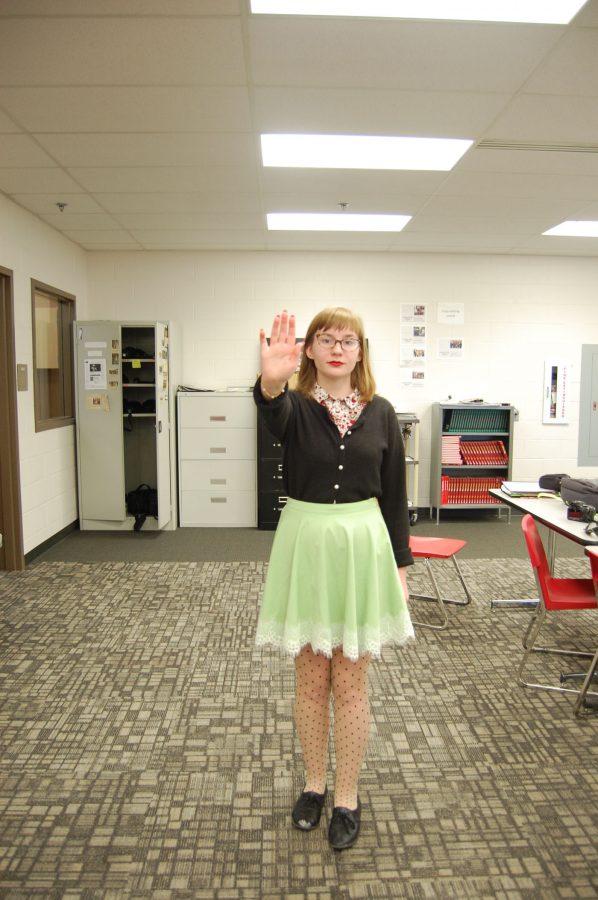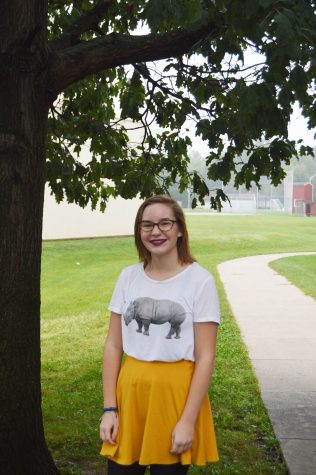Traffick is for cars, not human beings
April 21, 2017
Human trafficking is the criminal act of selling and trading children under the age of 18 into sex or labor slavery. According to UNICEF, it is one the fastest growing industries and the third largest criminal business in the world. And it is happening right in our own backyard.
I have always been aware of modern-day slavery, but I thought it mostly occurred in third-world countries.. However, in the past few months, my perception of this has changed. Through the power of different media platforms and research, I now know that this issue occurs across the United States, even in Indianapolis. Young girls who average the age of about 13 are walking up and down our streets being exploited and sexually abused.
And we as high school students have the power to change this.
One of the fastest and easiest ways to help put an end to this is to spread the word through social media. According to Dave Massey, the Chief Operating Officer at Restored Inc., the best form of activism is by being knowledgeable about human trafficking and talking about it.
“Learn lots and advocate where you can,” Massey said.
Today, there are more slaves than in any other time in history, and 26 percent of these slaves are children, according to freetheslaves.net. This amount is sickening to me, especially since so few people know about it. The illegal drug industry and the act of art theft, which are in the top three largest criminal businesses alongside human trafficking, are well known and talked about, but the market of selling and trading human beings is brushed under the rug.
This is a 105.2 billion dollar industry, which is almost 17 times larger than the NFL. Grown adults who have manipulated or captured children and are forcing young girls and boys to prostitute themselves do not deserve to receive a penny from this business, let alone $150,000 to $200,000 per child annually on average. Many Americans have encountered some form of human trafficking through the form of strip clubs or pornography. However, as a society we don’t tend to believe that this kind of crime could take place in our area, according to Massey.
“There’s always that element of the dirty stuff happens somewhere else,” Massey said. “We want to keep it at arm’s length…and we’ll look to everything from victim blaming to victim denying.”
This crime should not be ignored. As of 2016 in Indiana alone, the rate of human trafficking had increased by 58 percent since 2012. There are hundreds of children in Indiana that have been forced into human trafficking, and over 100,000 children in the nation. Eighty-three percent of those found in the United States who suffer from this crime are American, so the myth that Americans are not affected by this is not true, according to Massey.
One video I saw on Facebook showed actor Ashton Kutcher speaking out against human trafficking in the United States. Kutcher is the co-founder of the organization Thorn. This organization works to find traffickers who exploit children online. Because of this video, thousands of people’s eyes were opened to the reality of human trafficking, including mine.
This video sparked a flame in me to share videos and articles (and to even write an article) that advocates human trafficking.
There are also organizations in Indianapolis that help young people who have been victims of human trafficking, including Restored Inc.
“Restored exists to serve directly victims of human trafficking, specifically the female and juvenile…victims of sex trafficking here in Indiana,” Massey said.
By donating and volunteering with organizations like Restored, which provides access to shelters, food, water and appropriate clothing, we cam help assist those who have been unwillingly submerged into this terrible World.
The only thing standing between the end of human trafficking and its rapid growth is our willingness to make an effort. The facts are out there, we just need to spread them. If suspicious activity is spotted, please call the Human Trafficking Hotline at 1 (888) 373-7888.



